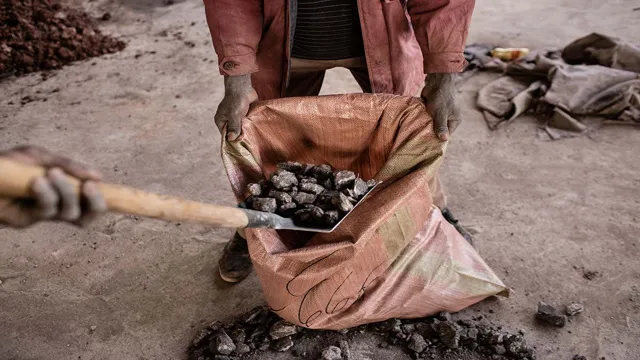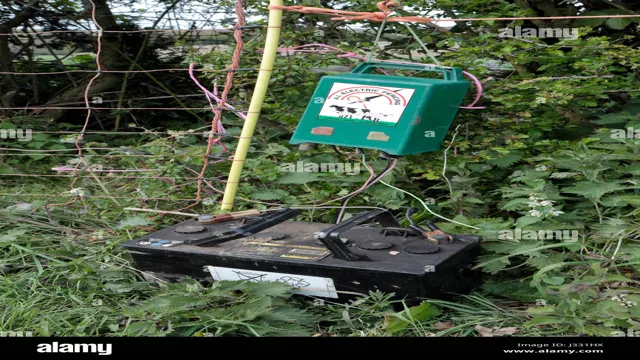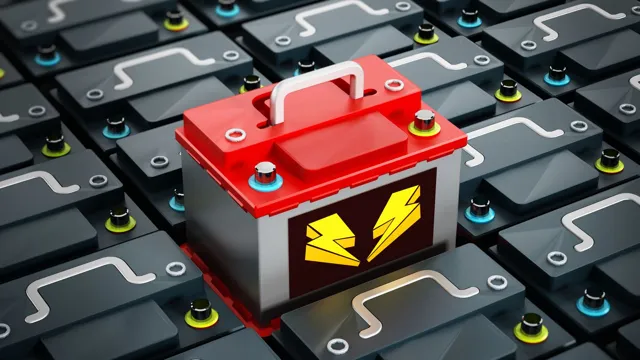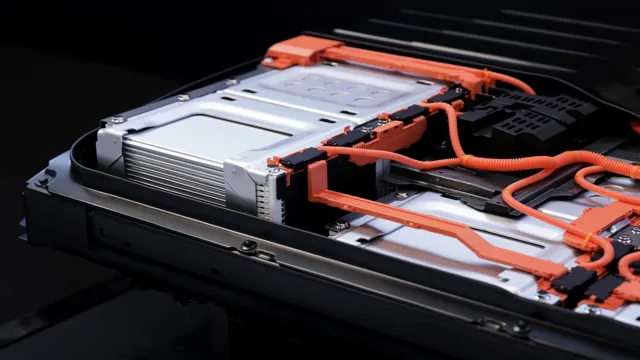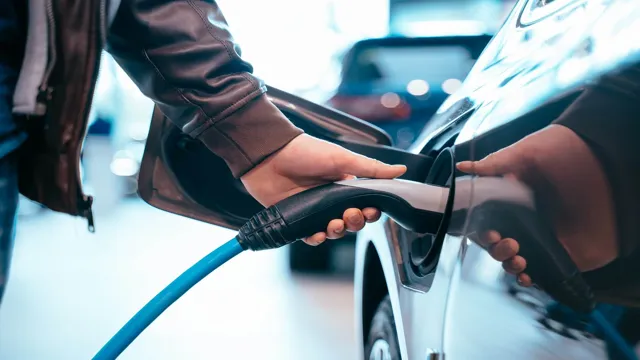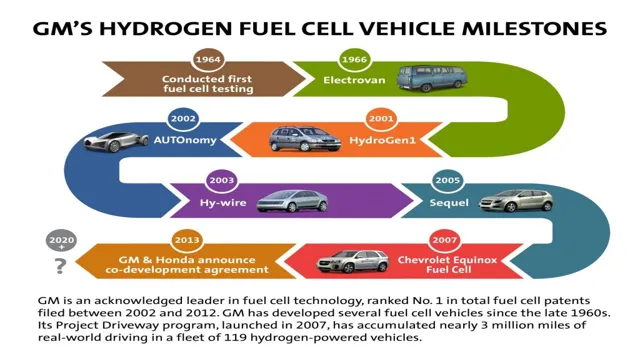Cobalt Mining: Fueling the Electric Revolution with Sustainable Battery Production
Have you ever wondered what allows electric cars to run for thousands of miles on a single charge? It’s all thanks to the batteries, and the mineral that plays a vital role in their production: cobalt. This rare metal is mined in several countries around the world, with the Democratic Republic of Congo being the largest supplier. However, there is a dark side to cobalt mining that has recently come to light.
Many of the workers involved in the process are not only underpaid but also forced to work in unsafe and hazardous conditions. The demand for cobalt has only increased with the surge in electric car production, leading to worries about human rights violations associated with the mining industry. On the other hand, many companies are now taking steps towards ethical and sustainable cobalt mining, ensuring that the workers involved in the process are treated fairly and that the environment is protected.
Companies like BMW, Tesla, and Apple have all pledged to use battery materials that are responsibly sourced, and this has led to a wave of change in the industry. So, while cobalt mining is undoubtedly an essential part of the electric car industry and battery production, it is crucial to promote ethical and responsible means of obtaining this mineral. As the world shifts towards more sustainable and environmentally conscious practices, it is up to us to ensure that we do not compromise human rights in the process.
What is Cobalt and Why is it Important?
Cobalt is a crucial metal used in the lithium-ion batteries that power electric cars, making it an essential component in the ongoing shift towards cleaner, greener transportation. Cobalt is found in various forms around the world, with the Democratic Republic of Congo (DRC) being the largest producer. However, there are concerns over the ethics of cobalt mining in the DRC, where child labor and hazardous working conditions are widespread.
This has led to a push for greater transparency in cobalt supply chains, and the development of alternative sources such as recycling and substitution with other metals. The push to reduce cobalt usage has also led to advancements in battery technology, with manufacturers such as Tesla and Panasonic working to improve the energy density and durability of their batteries while reducing their reliance on cobalt.
Cobalt is a rare metal that is essential in the production of lithium-ion batteries. This is because it provides stability and increases the battery’s lifespan. Without cobalt, the efficiency of the battery would be significantly lower.
Cobalt is a rare metal that plays an essential role in the production of lithium-ion batteries, which power our modern world. Without cobalt, the efficiency of the battery would significantly decrease, leading to lower performance and shorter lifespan. Cobalt provides stability, increases energy density, and improves the battery’s ability to maintain its charge over time.
This makes it a vital component in electric cars, smartphones, and other portable devices that rely on batteries. However, the downside of cobalt is that it is scarce and expensive, which has triggered concerns about environmental impacts and ethical mining practices in cobalt-producing countries like the Democratic Republic of Congo. Despite these challenges, the demand for cobalt remains robust, and green technologies that depend on it are expected to drive demand for the foreseeable future.
Thus, finding ways to mine and source cobalt responsibly and sustainably is crucial for building a greener and more sustainable future.
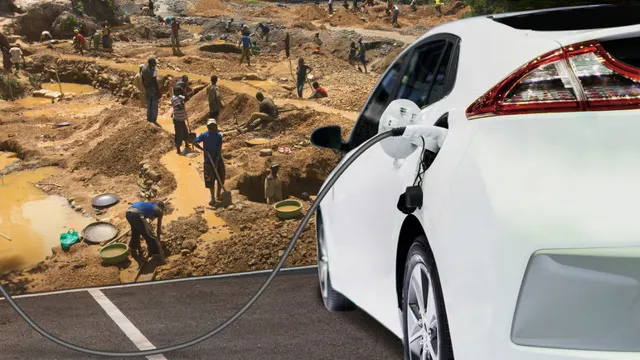
Where is Cobalt Mined?
Cobalt mining for electric car batteries is mainly concentrated in the Democratic Republic of Congo (DRC), which produces around 60% of the world’s cobalt. The rest is produced by other countries such as Canada, Australia, Russia, and Zambia. Cobalt is a crucial component in the making of lithium-ion batteries, which power electric vehicles.
Unfortunately, the mining process for cobalt is often unethical and environmentally damaging, particularly in the DRC, where child labor and hazardous working conditions are widespread. Furthermore, the demand for electric cars is predicted to grow exponentially, leading to an increase in cobalt mining and its associated issues. As consumers become more aware of these concerns, there has been a shift towards finding alternative cobalt-free batteries, which could help address these problems.
However, as of now, the majority of electric vehicles use cobalt-based batteries, and the issue of responsible sourcing remains critical in the journey towards a sustainable future.
The majority of cobalt is mined in the Democratic Republic of Congo (DRC), which produces over half of the world’s supply. Other significant producers include Australia, Canada, and Russia.
When it comes to cobalt mining, the Democratic Republic of Congo (DRC) is the predominant player in the market. It produces more than half of the world’s cobalt supply. This fact is often shrouded in controversy due to unethical mining practices, including the use of child labor and dangerous working conditions.
However, other countries like Australia, Canada, and Russia are also significant players in the cobalt industry. Australia is the largest cobalt producer outside of the DRC, with most of its mining taking place in the nickel industry. Canada and Russia also have cobalt mines, with Canada relying primarily on nickel-cobalt deposits and Russia extracting cobalt as a by-product of its nickel and copper mines.
It’s essential to note that while the world’s cobalt supply may be geographically diverse, ethical and sustainable mining practices must be at the forefront of any cobalt mining operation to ensure the protection of workers and the environment.
The Environmental Impact of Cobalt Mining
Cobalt mining for electric car batteries has gained attention in recent years due to the surge in demand for electric vehicles. However, the process of mining cobalt has significant environmental impacts. The extraction of cobalt can lead to habitat destruction, soil erosion, water pollution, and air pollution.
Moreover, child labor is often used to mine cobalt, which is a major ethical issue. Cobalt mining has also been linked to health issues such as lung diseases and cancer for workers. As the demand for electric vehicles continues to rise, it is crucial to find more sustainable and ethical ways to source cobalt, such as recycling and using alternative materials.
By doing so, we can minimize the negative environmental and social impacts of cobalt mining while still meeting the growing demand for electric vehicles.
Cobalt mining has a significant environmental impact, particularly in the DRC. Mining often involves deforestation, water pollution, and other negative consequences. It is important for the industry to take steps to reduce its environmental impact.
Cobalt mining is renowned for its adverse environmental impact, especially in the Democratic Republic of Congo (DRC). This mining industry is commonly associated with deforestation, water contamination, and other damaging effects on the environment. It is crucial for stakeholders to find ways to minimize this impact as much as possible.
Researchers and industry players have raised concerns about the severe environment degradation resulting from the mining activities, which could negatively affect not only the ecosystem but also the lives of locals in the region. The operations also lead to loss of habitats for various animals, which can lead to extinction. Therefore, the industry, in coordination with policymakers, needs to take swift action against such environmental harm.
Perhaps implementing sustainable mining practices could be an effective solution to minimize this harm significantly.
The industry is working to improve sustainability and minimize harm. Companies are investing in cleaner technology and improving working conditions. Additionally, renewable energy could help to reduce the reliance on cobalt mining.
Cobalt mining has a massive environmental impact, from deforestation, soil erosion, and water pollution to the displacement of local communities and endangered species. The cobalt industry contributes to greenhouse gas emissions, which are a leading cause of climate change. Fortunately, companies are taking steps to improve sustainability and minimize harm.
They are investing in cleaner technology and improving working conditions to reduce the negative impact of cobalt mining. Moreover, renewable energy could help to reduce the reliance on cobalt mining by developing alternative energy storage solutions. By reducing our dependence on cobalt, we can alleviate the environmental impact of the mining industry and move towards a greener, more sustainable future.
The Future of Cobalt Mining
As electric cars continue to gain popularity, the demand for cobalt mining for electric car batteries is expected to increase. However, this presents a challenge as cobalt is a finite resource and a significant portion of it is located in the Democratic Republic of Congo, where mining practices have raised concerns about human rights abuses and environmental damage. The future of cobalt mining for electric car batteries will depend on ethical and sustainable mining practices that do not harm local communities and the environment.
Alternative sources of cobalt, such as recycling or finding substitutes, should also be explored to reduce the reliance on mining. It is important for car manufacturers and governments to work together to develop a transparent and accountable supply chain that ensures the ethical sourcing and production of cobalt for electric car batteries. This will ensure a sustainable and responsible future for cobalt mining and the electric car industry as a whole.
Demand for cobalt is projected to increase significantly in the future as the electric car market continues to grow. It is crucial for the industry to address the environmental and ethical concerns around its production. Overall, the focus should be on developing new and sustainable technologies that can minimize environmental harm.
Cobalt is an essential component in the production of electric vehicle batteries, and as the market for electric cars grows, so does the demand for cobalt. However, the mining of cobalt has come under scrutiny due to environmental and ethical concerns. Mining operations have been linked to deforestation, air and water pollution, and the exploitation of child labor.
To ensure a sustainable future for cobalt mining, the industry must address these concerns and focus on the development of new and sustainable technologies. One such technology is recycling, where cobalt can be retrieved from used batteries, reducing the need for mining. Another option is to transition to mining methods that minimize environmental harm, such as nickel-cobalt mining using deep sea mining techniques.
Overall, it is crucial for the industry to prioritize the development of sustainable technologies that can minimize environmental harm and ensure a reliable supply of cobalt for the future of electric vehicles.
Conclusion
In conclusion, cobalt mining for electric car batteries may seem daunting, but it’s a necessary step toward a future of sustainability and environmental responsibility. As the demand for electric cars grows, so does the importance of ethical and responsible sourcing of critical raw materials. So, next time you hop into your sleek and silent electric vehicle, remember that it owes a debt of gratitude to the hardworking miners who dug up the cobalt that powers your ride.
And let’s hope that, with continued innovation and effort, we can find even better solutions for a cleaner, greener future.”
FAQs
What is cobalt mining?
Cobalt mining is the process of extracting cobalt mineral from the ground.
Why is cobalt important for electric car batteries?
Cobalt is used as a cathode material in the lithium-ion batteries that power electric cars. It helps to improve the battery’s energy density and stability.
Where is cobalt mined for electric car batteries?
Cobalt is primarily mined in the Democratic Republic of Congo, which produces over 70% of the world’s cobalt. Other significant producers include Canada, Russia, and Australia.
What are the environmental concerns associated with cobalt mining?
Cobalt mining can have serious environmental impacts, including deforestation, soil erosion, and water pollution. There are also concerns about human rights abuses and exploitation of workers in the cobalt mining industry.

